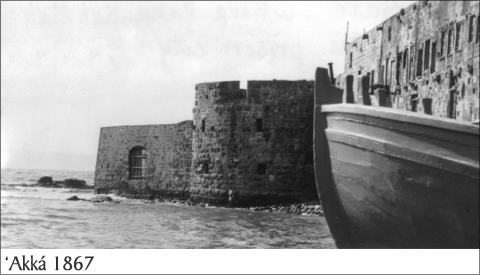|
|
|
Episode
3
July 12, 2021 The Hand of Authority Anyone can live contentedly in circumstances of ease and comfort, health and wellbeing, gratification and felicity; but to remain happy and contented in the face of difficulty, hardship and the onslaught of disease and sickness – this is an indication of nobility. ― ‘Abdu'l-Bahá  In 1867, a year before Bahá’u’lláh, His family and followers were exiled once more, He again confirmed His station as Him Whom God Shall Make Manifest, and from that moment on, except when dealing with issues within the Bahá’í community, Abbás Effendí became the representative of His father in all matters dealing with the outside world. This allowed Bahá’u’lláh the time and tranquility required to unfold His stupendous Revelation. The voyage from Adrianople to the penal colony in ‘Akká (Acre) – a place so foul it was said a bird could not fly over it without dropping dead – was fraught with great hardship, and since there was no pier on which to dock on arrival, the Bahá’is were ordered to carry the women to shore on their backs. Abbás Effendí, however, insisted that they be carried one by one on a chair He had provided, thus ensuring their dignity despite a crowd of townspeople jeering and insulting the newcomers from the citadel walls. It was in this bleakest of backwaters that the Bahá’is were expected to perish, forgotten. When the prisoners were brought to the barracks, the stench and heat so overcame Bahíyyih Khanum, now known as the Greatest Holy Leaf, that she fainted. They had no water or food for three days and were finally given inedible bread and brackish water. It wasn’t long before they were twisting in pain from dysentery and malaria, some dying, while the women, parched and ill, were incapable of feeding their inconsolable babies. Not long after they arrived, the Governor came and brusquely told them that if any of them went missing, he would cut off their bread supply. He then ordered them to return to their cells. One of the Bahá’ís, incensed, angrily shouted back at the Governor but was chastised severely by Abbás Effendí, who then commanded that he return to his cell. Impressed, the Governor astutely noted that here was one who was a natural leader and was reminded that after all, Bahá’u’lláh and His family were nobility and not common criminals. That rash Bahá’í later repented his action and thanked Abbás Effendí for His intervention, which saved them all from additional suffering.
|
|
|